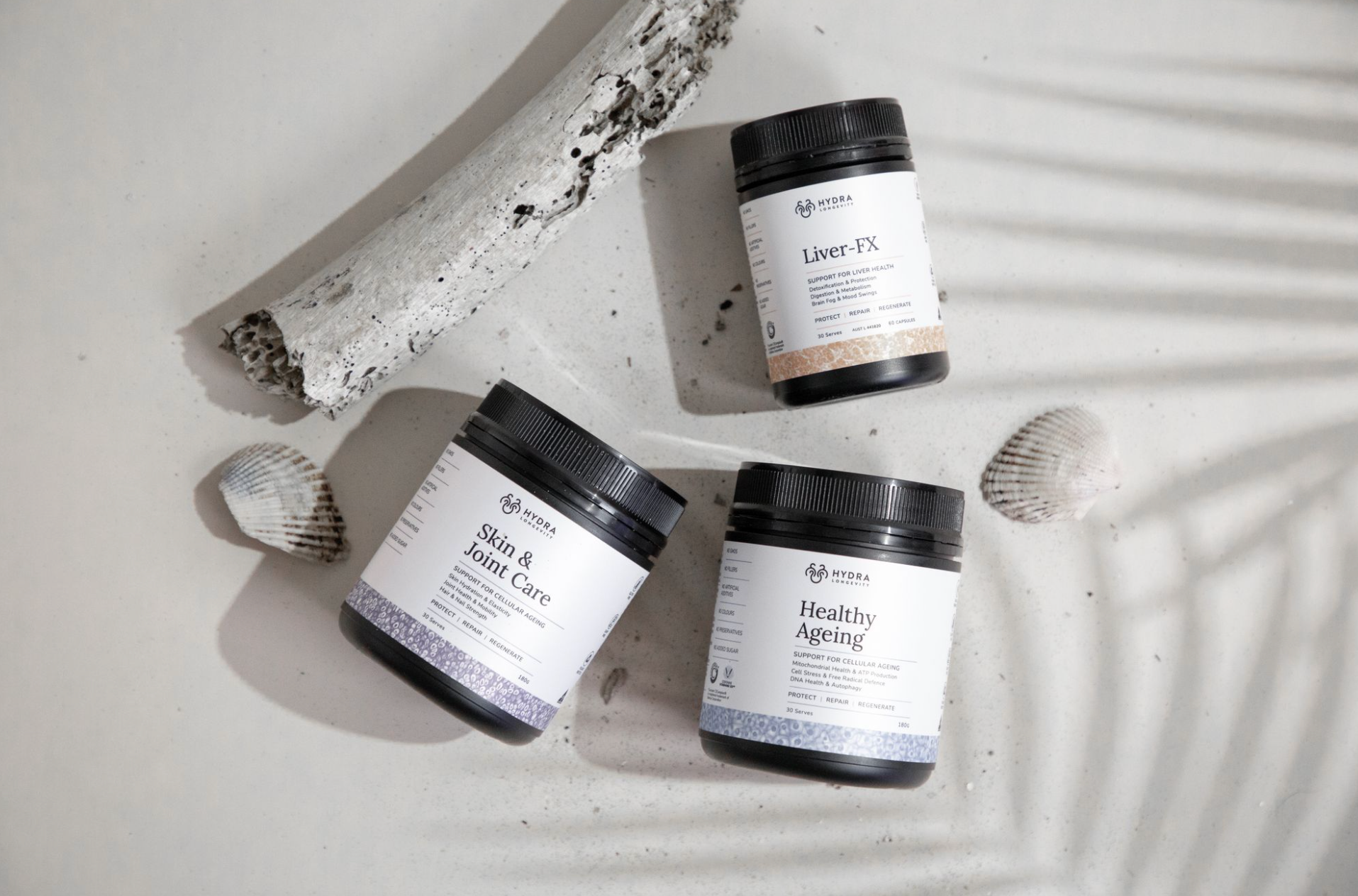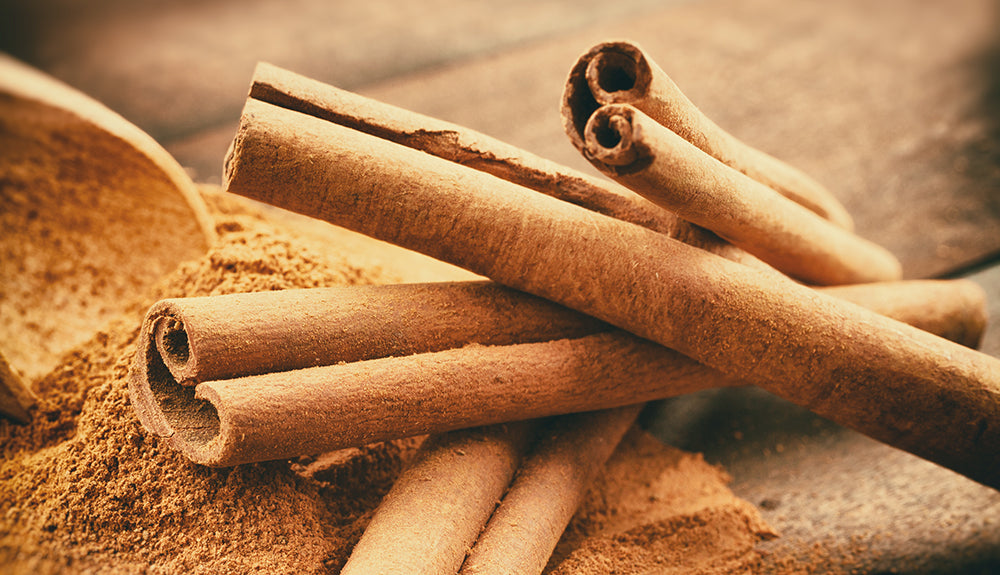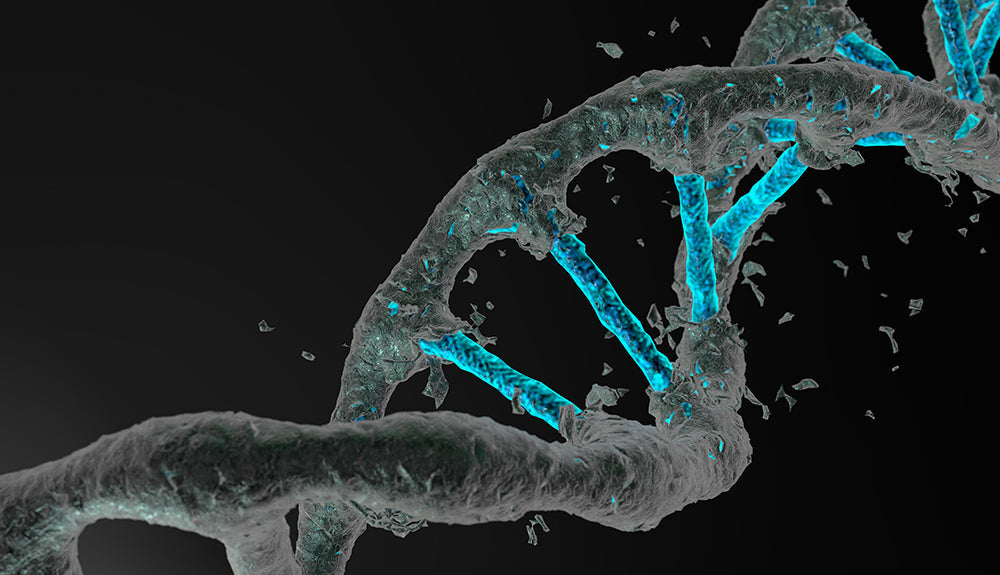Cinnamon gum, cinnamon rolls, cinnamon in coffee, cinnamon apple sauce… Cinnamon is ubiquitous in our everyday taste experience. From lowering our risk of diabetes to improving our antioxidant status, if used in the right context, cinnamon can be very beneficial to our well-being.
There are two main varieties of cinnamon available on the market today:
- Ceylon cinnamon: Cinnamomum verum is also known as “true” cinnamon. This variety of cinnamon is more expensive and is less toxic to your liver because it’s much lower in coumarin, a natural constituent that promotes blood thinning (think of the similar-sounding drug “Coumadin”, otherwise known as Warfarin).
- Cassia cinnamon: Cinnamomum cassia. This type is much more commonly available and is generally what you’ll be given if you request cinnamon at a store or restaurant [1].
The major compound in cinnamon is called cinnamaldehyde, which is oxidized into cinnamic acid. In the liver, this cinnamic acid is then oxidized into sodium benzoate (NaB) [2].
After it is consumed, NaB rapidly passes through the Blood Brain Barrier (BBB). Similarly, after the whole spice cinnamon was consumed, NaB was detected in the hippocampus of the brain [2].
Health Benefits of Cinnamon
The following benefits are attributed to the spice Cinnamon and/or its metabolite, Sodium Benzoate:
1) Cinnamon is a Powerful Antioxidant
Ceylon cinnamon increases levels of the master antioxidant, glutathione (in rats) [3].
In a study that compared the antioxidant activity of 26 spices, cinnamon ranked highest [4].
Cinnamaldehyde/Cinnamon activates Nrf2, the most important pathway for increasing our natural and innate antioxidant defense [5].
2) Cinnamon is Anti-Inflammatory and Can Help Balance the Immune System
Both the twigs and leaves of Cinnamon – are highly anti-inflammatory [6, 7, 8].
A variety of Cinnamon from Sri Lanka (C. zeylanicum) showed some of the most potent anti-inflammatory activity out of 115 anti-inflammatory foods tested [9].
Cinnamic aldehyde, a constituent of cassia cinnamon, has strong anti-inflammatory activity [10].
PATHWAYS:
- Inhibits TNF – inflammatory cytokines responsible for many chronic inflammatory diseases [11, 12].
- Inhibits IL-6 – another powerful inflammatory cytokine [13].
- Inhibits IL-1beta – another powerful inflammatory cytokine [14].
- Inhibits NF-kB [15] – The single most important factor causing inflammation in the body.
- Inhibits Th-17 immunity – an inflammatory cell produced in the stead of Tregs [16]. (increases IL-17).
- Increases IL-10, an anti-inflammatory cytokine [16].
- Increases PPAR Alpha, which inhibits COX2 [17, 18].
- Contains β-Caryophyllene oxide which is a STAT3 inhibitor [19, 20].
- Modifies costimulatory molecules to lower inflammation (Inhibits MHCII, CD80, CD86, CD275) [21].
- Activates PPAR gamma [17], which decreases inflammation [22].
- May increase Th2 response (metabolite sodium benzoate can convert Th1 to Th2) [23, 24].
- Reduces Th1 dominance (IL-12, IFNy) [21, 25].
- Increases Tregs [26], restraining the immune system and preventing an excessive T Cell response [27].
- Inhibits IL-8 [28], a ‘chemokine’ produced by various immune cells. IL-8 an important part of our immune response.
3) Cinnamon Inhibits Opportunistic Infections (Anti-Microbial, Anti-Fungal, and Anti-Parasitic)
Can inhibit the growth of Listeria and Salmonella [29, 30].
Is a potent inhibitor of E. coli [31].
Ceylon Cinnamon showed strong antibacterial activity against MRSA in test tube experiments [32].
Cinnamon can also help prevent tooth decay and bad breath [33, 34]. In fact, cinnamon was shown to be even more effective than clove for the bacteria that cause dental plaque [33].
Cinnamon most effectively inhibited HIV-1 out of all 69 medicinal plants studied (in test tube experiments) [35].
Cinnamon Essential oil [36], Cinnamon/Cinnamaldehyde [37, 36], Eugenol [37, 38, 36] found in cinnamon essential oil – are all Biofilm disruptors.
Hydroxycinnamic acids and Cinnamaldehyde are quorum-sensing inhibitors [40, 37].
Cinnamon shows anti-fungal activity against Candida albicans (“Candida“) [41, 42] and other infectious fungi such as Aspergillus niger (Black Mold), A. fumigatus, A. nidulans, A. flavus, C. tropicalis, C. pseudotropicalis, and Histoplasma capsulatum [42].
Cinnamon is antiparasitic (giardia and malaria) [43, 44].
Cinnamon increases Tregs [26], which can be important for clearing some infections. They are crucial for the establishment of a functional Th17 response after the infection in the gut (with the help of IL-2) [45].
4) Cinnamon Can Help With Autoimmune Disease
Sodium Benzoate, a Cinnamon metabolite, has shown to be an effective treatment for the autoimmune disease Multiple Sclerosis (M.S.) in animal models [23]. The whole cinnamon spice shows similar potential for M.S. [46, 47].
PATHWAYS:
- Increases Tregs [26], which can stop our immune cells from attacking our own tissue [48].
- Inhibits TNF alpha [11, 12] which is associated with autoimmune disease [49].
- Increases PPAR Alpha [17], which decreases autoimmune conditions such as MS (animal models) [50].
- Decreases IL-12 (Th1 cytokine), an inflammatory cytokine that worsens autoimmunity [25].
- Inhibits NF-kB [15], which is associated with autoimmune and inflammatory disease [51], including Multiple Sclerosis [52] and Lupus [53].
- Inhibits IL-6 [13], an inflammatory cytokine which is otherwise associated with a number of autoimmune diseases, including: Rheumatoid arthritis [54], Fibromyalgia [55], Multiple Sclerosis [56], Behcet’s [57], SLE [58], System Sclerosis [59], IBS [60], IBD, Crohn’s [59].
- Inhibits Th-17 immunity [16], which is associated with several autoimmune diseases: Hashimoto’s [61], Grave’s [62], Multiple Sclerosis [63], SLE [64], Uveitis [65], Type 1 Diabetes and others.
- Inhibits IL-8 [28], which is associated with a number of autoimmune diseases, including Colitis [66], Crohn’s [67], Rheumatoid Arthritis [68, 69], Multiple Sclerosis [70], Lyme [71], ALS [72], Behcet’s [57], Fibromyalgia [73], Psoriasis [74] and Eczema [75].
- Increases IL-10, an anti-inflammatory cytokine [16] that may protect against autoimmune diseases, including: Rheumatoid Arthritis [76], Sclerosis [77], Behcet’s [78], Asthma and Allergies [79], Crohn’s [80], Colitis [81], Psoriasis [82], and Eczema [76].
5) Cinnamon is Good for Your Gut
Cinnamon extract suppresses experimental colitis/alleviates symptoms of Inflammatory Bowel Disease in mouse models [83, 21].
It shows potential for colon cancer in animal studies [84].
PATHWAYS:
- Inhibits TNF alpha [11, 12], which otherwise can induce a ‘leaky gut’ [85] and is associated with IBS [60, 86] and Crohn’s/Ulcerative Colitis [87].
- Activates PPAR gamma [17], which decreases inflammation and can help IBD (Crohn’s, Ulcerative colitis) [22].
- Inhibits IL-6 [13], which is elevated in IBS [60] and Crohn’s disease [59].
- Increases intestinal TGF-beta [25], increasing serotonin transporters and serotonin uptake in the gut, which is low in IBS and IBD [88]. TGF-b also leads to the death of T cells that attack our tissue (clonal deletion) [89]. So this suggests that TGF is protective against autoimmune gut disorders.
- Inhibits IL-1beta [14] which is a powerful inhibitor of stomach acid. High IL-1beta can lead to uncontrolled H pylori infection and worsen digestion of food [90].
- Inhibits NF-kB [15], which is associated with gut diseases [91]: IBS [92], Crohn’s [93], Colitis [93].
- Inhibits IL-8 [28], which is associated with IBS [94], Colitis [66], and Crohn’s [67].
- Increases Tregs [26], protecting against IBS [95], IBD [96] Colitis [97], Crohn’s [98].
- Inhibits Th-17 immunity [16], which is associated with IBS [99] – some cases, and IBD: Crohn’s [100], Colitis [101] – contradictory [102].
- Increases IL-10, an anti-inflammatory cytokine [16] that may protect against IBS [86] – especially in males [103], Crohn’s [80], Colitis [81] – people with Crohn’s felt better when given a bacteria that produces IL-10.
6) Cinnamon is Anti-Diabetic
Cinnamon reduces insulin resistance [105, 106].
Cinnamon can function like insulin without insulin (insulin mimic) [107, 108].
In human trials, cinnamon can lower fasting blood sugar levels by up to 10-29% [109, 110, 111].
Indonesian Cassia Cinnamon (C. burmannii) tea helps significantly lower blood sugar levels after meals in non-diabetics [112].
Decreasing blood glucose may contribute to wakefulness (by increasing orexin) [109, 113].
PATHWAYS:
- Blocks the absorption of carbs [114, 115].
- Inhibits TNF alpha [11, 12] which is associated with Insulin Resistance [116] and Type II Diabetes [117].
- Inhibits IL-6 [13], an inflammatory cytokine which is otherwise associated with diabetes [118].
- Inhibits IL-1beta [14], a cytokine that can contribute to diabetes by decreasing the amount of zinc your pancreas gets [119].
- Inhibits NF-kB [15], which is associated with Diabetes [120], Types 1&2 [91], insulin resistance [121].
- Activates PPAR gamma and reduces blood glucose levels (via GLUT4) [17].
- Increases Tregs [26], protecting against Diabetes [122].
7) Cinnamon Can Help With Satiety
The combination of cinnamon and vinegar increases satiety immediately after meals indicating an additive effect of the 2 substances [123].
PATHWAYS:
- Increases GLP-1 [124]. GLP-1 is a gut hormone that can activate neurons in the hypothalamus that increase orexin levels. Orexin is a neurotransmitter that regulates arousal, wakefulness, and appetite. GLP-1 helps make us feel satiated as well, which will make us eat less and activate orexin even more.
8) Cinnamon Is Great for Your Skin
Promotes collagen production for anti-aging effects in test tube studies [125, 126].
PATHWAYS:
- Inhibits TNF alpha [11, 12] which is associated with Psoriasis [127] and Eczema [128].
- Inhibits IL-1beta [14], a cytokine that is associated with UV-induced skin damage [129], contact allergic dermatitis [129], psoriasis [130], and eczema [131].
- Inhibits Th-17 immunity [16], which is associated with acne lesions [132], psoriasis, and eczema [133].
- Inhibits IL-6 [13] which can also cause skin problems. When your natural skin fungus gets out of control the body attacks it with cytokines that include IL-6 (also IL-1b, TNF, IL-8), which recruits other aspects of the immune system. IL-6 is elevated in people with tinea versicolor, a skin fungus [134]. IL-6 also increases Th22 cells, which disrupts skin microbial balance [135].
- Inhibits IL-8 [28], which is associated with psoriasis, eczema [75], and vitiligo [136].
- Increases IL-10 [16], which may protect against psoriasis [82] and eczema [76].
- Inhibits NF-kB [15], which is associated with aging [91], eczema [137], and psoriasis (138).
- Increases Tregs [26], which help protect against eczema [139] and psoriasis [140].
9) Cinnamon Promotes Weight Loss
Cinnamon blocks the absorption of carbs in animal studies [114, 115].
Cinnamaldehyde significantly lowered ghrelin secretion in obese mice fed for five weeks with CIN-containing diet. It also significantly reduced their food intake and their cumulative weight gain and improved glucose tolerance without changing insulin secretion [141].
PATHWAYS:
- Increases IL-10, an anti-inflammatory cytokine that leads to weight loss [16].
- Increases PPAR Alpha [17]. Mice without PPAR alpha have 20X less UCP-3 which is important for fat loss [142]. This and other mechanisms make PPAR alpha important for fat loss.
- Activates AMPK [143], which increases ‘fat burning’ and this ‘pathway’ can result in weight loss [144].
- Inhibits NF-kB [15], which is associated with Obesity [91].
- Inhibits IL-8 [28], which is released by fat cells. It is elevated in obese people and correlated with fat mass [145].
10) Cinnamon Protects the Brain
Cinnamon reduces risk of Alzheimer’s Disease. It does this by blocking the accumulation of tau protein in the brain, which is the main characteristic of Alzheimer’s [146, 147, 148].
It reduces the risk of Parkinson’s Disease. In a mouse model of Parkinson’s disease, cinnamon helped to protect neurons, normalize neurotransmitter levels, and improve motor function [149].
PATHWAYS:
- Inhibits IL-1beta, a cytokine with a strong pro-inflammatory effect [14] that can harm cognitive performance. IL-1b is detrimental to neuronal synapses during activation-induced inflammation and causes neuro-degeneration [150]. It can also negatively impact Long Term Potentiation [151], which is critical for learning and memory [152].
- Inhibits NF-kB [15], which is associated with Alzheimer’s [153], Parkinson’s [154], ALS [155], Schizophrenia [51], Bipolar, and possibly Anorexia [156].
- Inhibits IL-8 [28], which predicted smaller gray matter volumes in the hippocampus [157], and is associated with Alzheimer’s [158], Depression [159], Bipolar (could be from lithium) [160], Schizophrenia [161] – Also, children had higher risk for schizophrenia when pregnant mothers had elevated IL-8 [162]. High IL-8 reduced the likelihood of positive responses to antipsychotic medication [163].
- Inhibits TNF alpha [11, 12] which is associated with Alzheimer’s [164], Parkinson’s [128], ALS [165], OCD – only sometimes [166], Schizophrenia [167], Bipolar [168, 169], Anorexia [170].
- Inhibits IL-6, an inflammatory cytokine [13] which is a decent predictor of cognitive decline in late midlife. A 10-year decline in reasoning was greater among people with high IL-6 than those with low IL-6. In addition, people with high IL-6 had 1.81 times greater odds of decline in a test that measures normal cognitive function [171].
- Increases PPAR Alpha [17], which may protect against Multiple Sclerosis and Alzheimer’s Disease.
11) Cinnamon Helps Anxiety & Depression
Cinnamon reduced anxiety in lab rats [172].
PATHWAYS:
- Inhibits TNF alpha [11, 12], which is associated with Major Depression [167] – Depressed people had TNF levels that were about 3.97 pg/ml higher than healthy people [173].
- Inhibits IL-6, an inflammatory cytokine [13] that may cause feelings of “hopelessness”. This state strongly correlated with IL-6 levels [174].
- Inhibits NF-kB [15] which is associated with both anxiety [175] and depression [176].
- Inhibits IL-1beta, [14] which is associated with anxiety and HPA activation [177, 178], as well as depression [167].
- Increases IL-10, an anti-inflammatory cytokine [16] that may protect against depression [179], and anxiety [180, 181, 182].
12) Cinnamon is Good for the Cardiovascular System
Cinnamon reduces total cholesterol, LDL cholesterol, and triglycerides, while HDL cholesterol remained stable [183]. A big review study concluded that cinnamon also increased HDL (the “good”) cholesterol [184].
It also reduces blood pressure (animal studies) [185].
PATHWAYS:
- Inhibits TNF alpha [11, 12], which is otherwise associated with heart disease [186] – Heart failure [187], Atherosclerosis [187], Stroke [188].
- Increases PPAR Alpha, which is protective against heart disease in that it inhibits macrophage inflammation and increases cholesterol flow (via LXR and ABCA1) [17, 189].
- Activates PPAR gamma [17], which decreases inflammation in your heart, reduces cholesterol, and reduces blood pressure (in rats). Through these mechanisms, it’s believed that it PPAR gamma decreases heart disease [190].
- Inhibits NF-kB [15], which is associated with Heart Disease, Atherosclerosis [51], Stroke [91], Angina [91].
- Inhibits IL-8 [28], which contributes to forming plaques in our arteries [145]. IL-8 also enhances the binding of cholesterol (LDL) to blood vessels and increases the adhesion of immune cells in these vessels. Both of these events contribute to atherosclerosis [191].
- Increases Tregs [26], protecting against Heart Disease/Atherosclerosis [192].
- Inhibits IL-6 [13], an inflammatory cytokine which is otherwise associated with Heart disease [186].
13) Cinnamon Protects Against Osteoporosis
Ceylon cinnamon reduces the breakdown of bones and can help prevent osteoporosis in test tube studies [193].
PATHWAYS:
- Inhibits TNF alpha [11, 12] which is associated with Osteoporosis [187].
- Inhibits IL-6 [13], an inflammatory cytokine which is otherwise associated with Osteoporosis (postmenopausal) [194]. IL-6 promotes osteoclasts, which degrade bones [195].
- Inhibits NF-kB [15], which is associated with Osteoporosis [196].
- Inhibits Th-17 immunity [16], which is associated with Osteoporosis [197, 198] – Women in menopause have less.
- Inhibits IL-8 [28], which is associated with Osteoporosis (post-menopausal) [199].
14) Cinnamon May Protect Against Cancer
Cinnamon seems to reduce cancer risk. Overall, the evidence is limited to test tube experiments and animal studies, which suggest that cinnamon extracts may protect against cancer [200, 201, 202, 203, 204].
PATHWAYS:
- Inhibits TNF alpha [11, 12], which is otherwise associated with cancer – in general [205], Melanoma [49].
- Inhibits NF-kB [15] which is strongly associated with cancer [51] – about 45 cancers [91].
- Inhibits IL-8 [28], which is known to be a potent promoter of blood vessel growth (angiogenesis). This is what helps cancer grow. It also increases the proliferation and survival of cancer cells [206]. IL-8 can also cause resistance to chemotherapy in cancer cells [207].
- Inhibits IL-6 [13], an inflammatory cytokine which is associated with Cancer (Myeloma [118], Prostate [118], Breast [208], etc…).
- Inhibits Th-17 immunity [16], which is associated with some cancers: Leukemia [209], Multiple Myeloma [210].
15) Cinnamon Increases BDNF
A metabolite of cinnamon (NaB) dose-dependently increased the neurotrophic factors BDNF and NT-3 in human neurons and astrocytes [211].
This article was first published by Joe Cohen, BS on selfhacked.com





